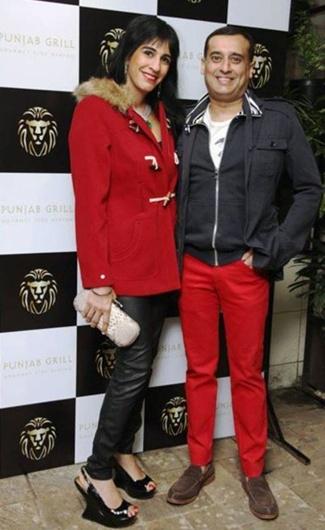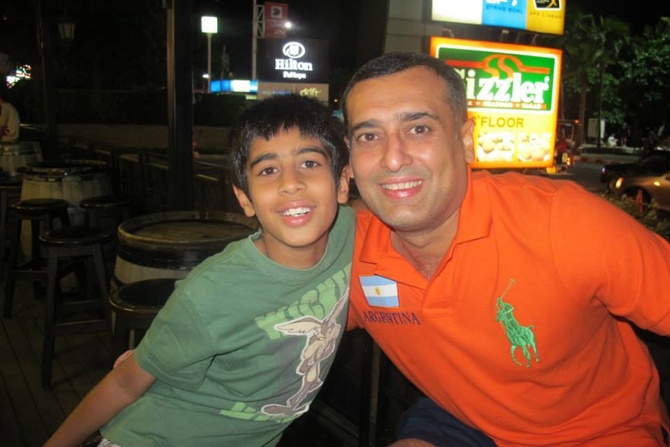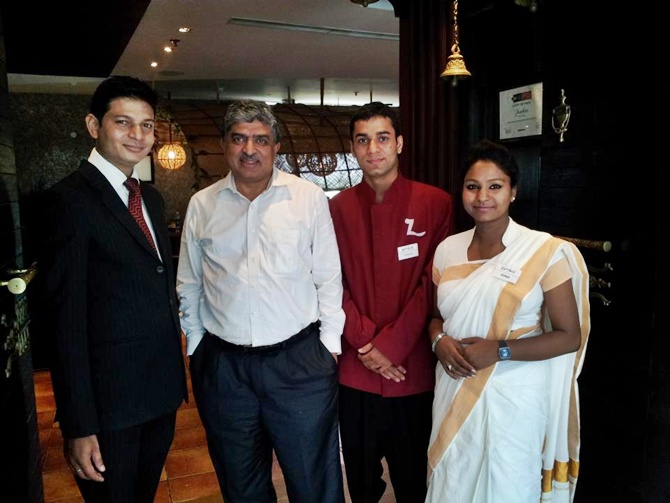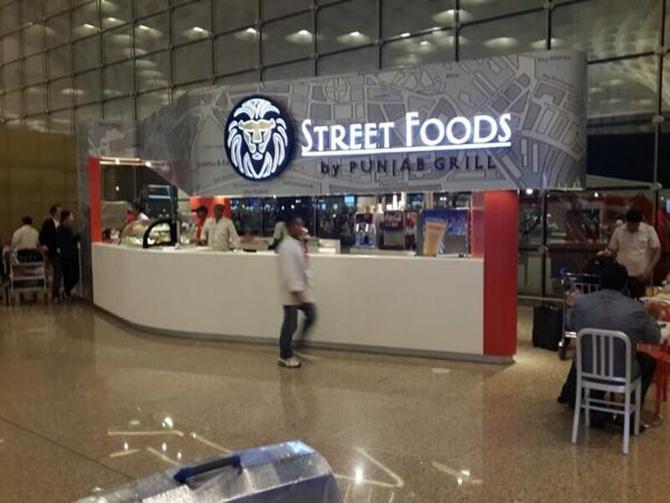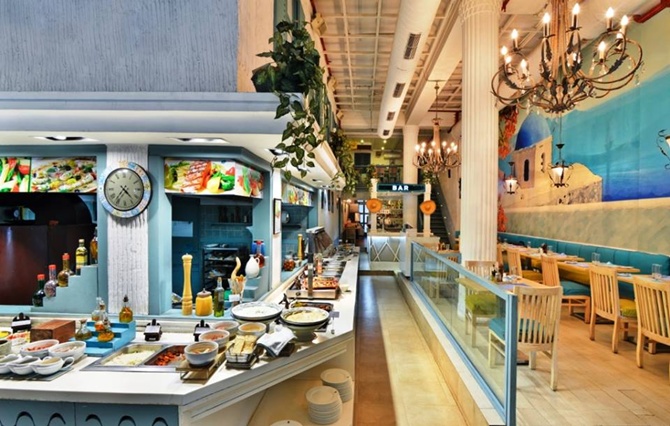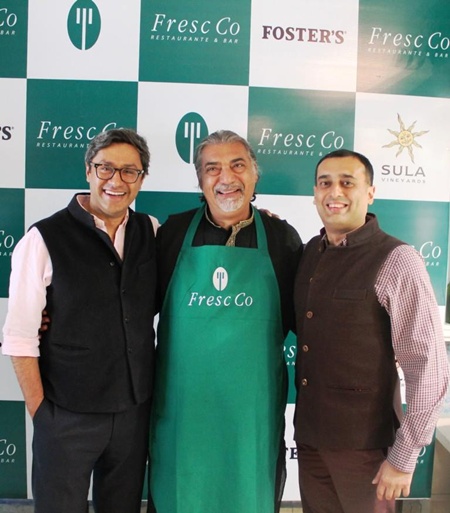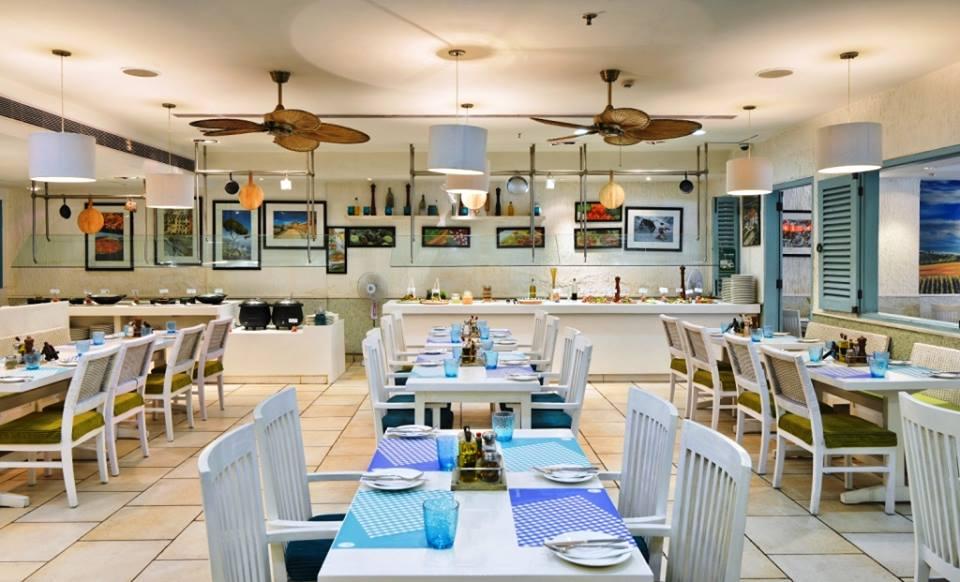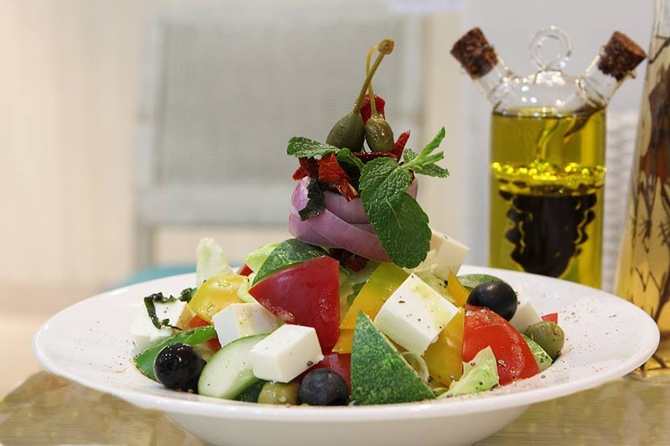 | « Back to article | Print this article |
The impressive success story of Amit Burman
The low-profile Dabur scion has become India’s largest restaurateur.
If you drive down Janpath from Connaught Place, there is a Tibetan market to your right, followed by The Imperial, Delhi’s most stylish five-star hotel.
Drive to the end of the road and the country’s most powerful address (after Antilia in south Mumbai, some would argue) will fall on your left: Sonia Gandhi stays here behind high walls, protected by an army of guards.
My destination is right at the beginning of the road: Fresc Co. The décor is Mediterranean. The lilac paint on the door and windows are soothing in the strong Delhi sun.
A signboard at the entrance claims it serves the best buffet in town. Another makes grand happy hour promises.
I haven’t bothered to book a table and I know I won’t have to try hard to catch the waiter’s eye - my guest is the restaurant’s owner, Dabur Vice-Chairman Amit Burman.
Click NEXT to read more…
The impressive success story of Amit Burman
A table for four has been blocked for us, not far from the buffet and the bar. This is rush hour: office goers, lovers trying to spend maximum time here for minimum money and kitty gangs.
When Burman walks in a few minutes later, there is no commotion among the waiters. Only the restaurant in-charge seems to know him.
Burman is in a green striped shirt with dark trousers and black leather shoes.
On his left wrist is a sporty Hublot with a red dial and red rubber strap, and on his right are four friendship and fitness bands.
The “filter” water that I had asked for disappears and a bottle of packaged water promptly arrives on our table.
Burman had to attend the inaugural lunch at a restaurant he has opened inside a store in south Delhi, but he sneaked out after puja for our lunch.
Click NEXT to read more...
The impressive success story of Amit Burman
Burman runs 55 quick-service and casual-dining (not fine-dining because those can’t be scaled up rapidly) restaurants in India.
The new terminal at the Mumbai airport will soon add 14 to the list (all told, he has the mandate to put up 30 restaurants there). And he has signed an agreement with the Mumbai Metro for another 34 at its stations.
The range includes Punjab Grill for north Indian cuisine, Zambar for coastal Indian food, Asia Seven for Southeast Asian food, Fresc Co for Italian and Mediterranean, Pino’s for pasta and pizza, coffee house Baker Street, and Street Foods of India.
Click NEXT to read more...
The impressive success story of Amit Burman
He runs some Subway outlets in India, and has bought, along with Neeraj Kanwar of Apollo Tyres, an Italian restaurant called Scalini in London.
His food ranges from a box of rajma-chawal for Rs 25 at Street Foods of India to a meal at Scalini for Rs 2,500.
His restaurants fetched him a turnover of Rs 105 crore (Rs 1.05 billion) in 2013-14. This year, he hopes to improve that to Rs 160 crore (Rs 1.6 billion).
In addition, he sells imported inexpensive rum, cognac, wine and a Scotch whiskey called Kuchh Nai.
Click NEXT to read more...
The impressive success story of Amit Burman
Burman was destined for a career in food. All Burmans, some years ago, gave up their executive responsibilities at Dabur. Burman, who had built Dabur’s foods business (Real fruit juices, Hommade pastes and so on) from scratch to Rs 350 crore (Rs 3.5 billion), was left with no work.
He tried his hand at the internet, set up a birthing boutique and became an Audi dealer. Yet, what clicked was food.
When most businessmen talk of making billions overnight, aren’t the possibilities in the food business small? Burman gives a startled laugh: “Subway has 17,000 branches. What are we talking about? We haven’t even gone beyond Delhi and Mumbai.”
Click NEXT to read more...
The impressive success story of Amit Burman
The idea to get into food stuck Burman when he was eating at a Subway in south Delhi with a friend.
When he wrote to Subway to become a franchisee, he was called to Milford in Connecticut for training: he chopped vegetable, swept floors, made sandwiches and often opened and shut the store.
At that time, Subway allowed franchises two local variants, of course, after they were approved by the development agent.
Burman had developed a kala chana sandwich, but it didn’t pass muster. Ten years later, he is India’s biggest restaurateur. Every few days he gets offers from others to buy out their eateries, but Burman refuses because “he wants to build his own brands”.
Click NEXT to read more...
The impressive success story of Amit Burman
As I sip some wine (Jacob’s Creek, white), Burman says the toughest piece of the restaurant jigsaw is real estate.
This restaurant is spacious and split into two levels — no mean achievement in Connaught Place where every matchbox-sized room has half-a-dozen owners.
It is 2,000 sq ft in size, Burman says, for which he pays a monthly rent of Rs 6 lakh.
Typically, he says, the rent should not add up to more than 20 per cent of the restaurant’s sale. “We keep it at 15-17 per cent.”
Click NEXT to read more...
The impressive success story of Amit Burman
The restaurant, according to him, does sales of Rs 33 to 35 lakh in a month and is profitable.
Of course, the restaurant has to deal with numerous inspectors, which, Burman says, raises costs by about one per cent (way below the 20 per cent Arvind Kejriwal talked about). “In malls, it is zero,” Burman adds.
Right then, a young man comes and shakes Burman’s hand. “He is the man who owns the place,” Burman introduces him to me. “No, no. He owns the place,” the man gushes. The two agree to catch up once our lunch is over.
The buffet spread is lavish: salads, grills, fries, pastes. We load our plates with greens and grilled meat. The potato wedges look too good to ignore. Pasta and pizza are being tossed in an open kitchen.
Click NEXT to read more...
The impressive success story of Amit Burman
Burman recommends Carbonara: penne in white sauce with bacon strips thrown in. For himself, he orders grilled fish in red sauce. Burman plays a prominent role in deciding the menu of every restaurant.
His office in Gurgaon is like a lab where cooks carry out experiments with food. If he likes a muffin in a faraway place, he takes a picture and shows it to his cooks.
With food goes fitness and sport. Burman, along with cousins Anand (he is the chairman of Dabur) and Mohit, has invested in the Mumbai franchise of the Hockey India League. But football’s Indian Super League has failed to attract him.
Click NEXT to read more...
The impressive success story of Amit Burman
“Unlike cricket and hockey, there are 150 football leagues in the world; this will be another one,” he says. Moreover, there is no way top-notch world players will come to play in the Indian league, he is convinced; so, the Indian Super League is unlikely to generate buzz.
Has he been tempted to invest in the Indian Premier League? “The asking price is too much,” says Burman. He names one team that approached him but he found the price tag of Rs 1,500 crore (Rs 15 billion) excessive.
The pasta is sumptuous. The bacon has the right crispness. There isn’t too much cheese floating on top.
Anything heavier would have put me to sleep. The conversation moves to politics: the ongoing general elections.
Click NEXT to read more...
The impressive success story of Amit Burman
Like most others, Burman feels business will improve if Narendra Modi becomes prime minister.
The current low consumer sentiment has started to hurt sales since people eat out less (Fresc Co, by now, is full. A friend who had come here Sunday evening without a reservation was told he would have to wait for an hour.)
But Burman, ever the practical businessman, never gives political donations because he doesn’t want to be seen as being close to any one party.
Shaina N C, a fashion designer and a spokesperson of the Bharatiya Janata Party, has often called Burman for a dinner with Modi. So far, he hasn’t taken up her offer.
Burman skips dessert, while I take a fruit platter. He laughs away my offer to settle the bill.
